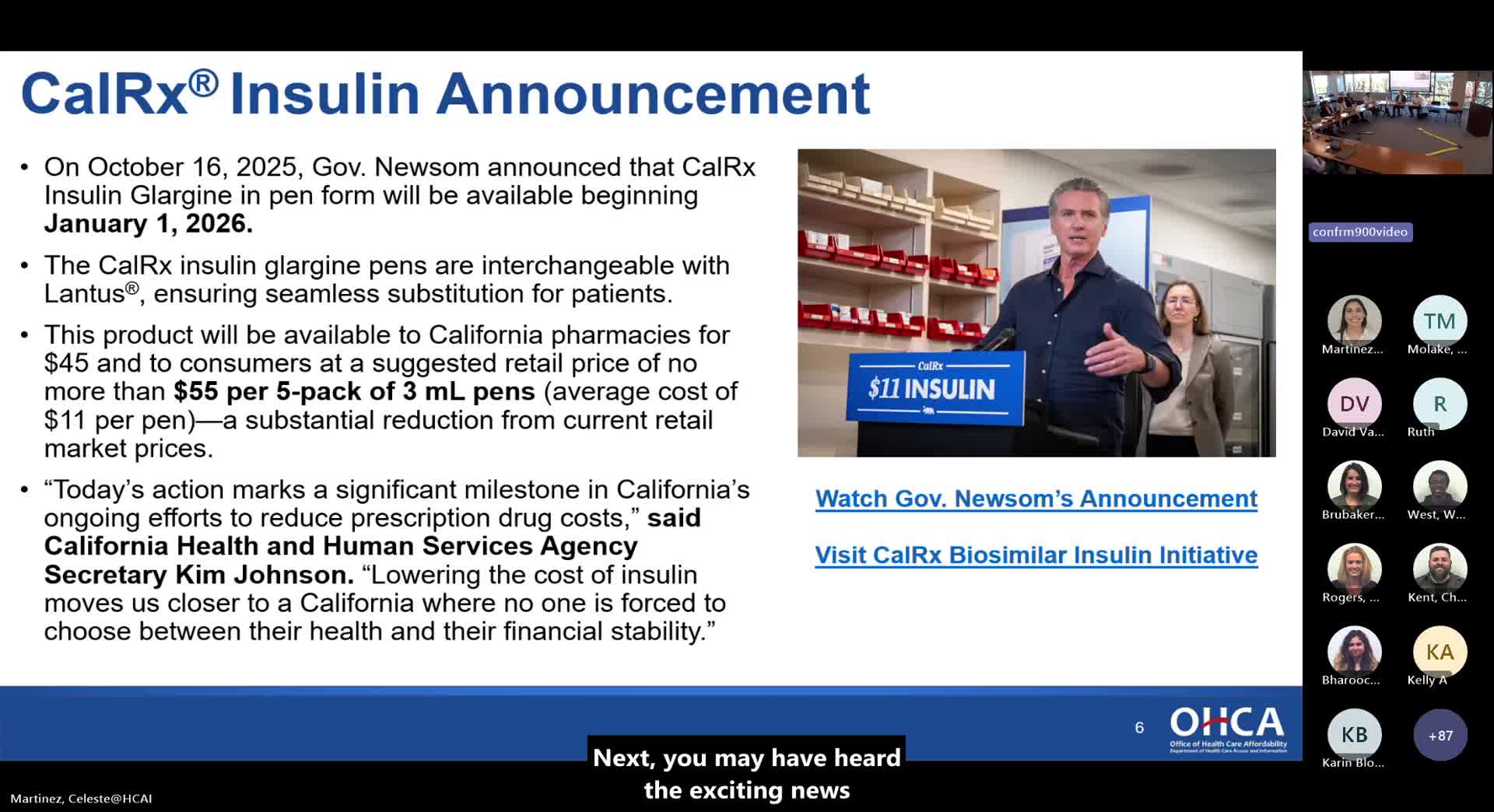Director highlights Calyrex low-cost insulin, tribal consultation and $50 billion rural health application
Get AI-powered insights, summaries, and transcripts
Subscribe
Summary
Director Lansberg told the board California will launch a state-backed low-cost biosimilar insulin (Calyrex) on Jan. 1, 2026, previewed California's $50 billion federal rural-health application and summarized recent tribal consultation and legislative developments.
Director Lansberg opened the Oct. 17 meeting by previewing the office's major initiatives. She described the Calyrex biosimilar insulin initiative as a state-backed program that will make insulin glargine pens available to consumers starting Jan. 1, 2026 at a maximum patient price of $55 for a 5-pack and said pharmacies will be able to purchase the product for $45. "This initiative really underscores California's commitment to improving medication affordability," Lansberg said.
Lansberg said HCAI has increased tribal engagement in advance of California's Rural Health Transformation Program application under federal HR1, describing the national NOFO as a five-year, $50 billion program to strengthen rural health delivery. Her presentation described three priority areas in California's application: (1) transformative hub-and-spoke care models, with larger hospitals supporting rural spokes such as clinics, tribal clinics and community health workers; (2) technology and data-exchange modernization, including shared purchasing and technical assistance for EHR modernization and cybersecurity; and (3) workforce development emphasizing "grow-your-own" strategies for primary care, maternity, behavioral health and allied health staff.
The director also told the board the California Hospital Association filed suit in San Francisco Superior Court on Oct. 15 challenging aspects of the statewide spending-target regime, including the definition of the hospital sector and methods to identify high-cost hospitals. "HCAI does not comment on pending litigation," Lansberg said.
She summarized recently enacted state legislation that staff said affects the office's work (transcript references included AB 1415 on required MSO and private-equity reporting; SB 660 on the data-exchange framework moving to HCAI; AB 1312 on presumptive eligibility in hospital discount and charity care policies; SB 40 and SB 41 on insulin and PBM reforms; and AB 144 establishing an abortion access fund), and described HCAI's participation in Los Angeles's medical-debt summit.
Ending
Lansberg asked the board for input on the rural-application design and thanked staff and stakeholders for engagement. The application is due to CMS under the federal NOFO timeline; staff said they planned to submit ahead of the deadline to avoid technical issues.
Quotes
"This initiative really underscores California's commitment to improving medication affordability," Director Lansberg said of Calyrex.
"It was a privilege to take part in tribal consultation and hear tribal leaders describe the long distances and the need for primary, maternity, mental health and substance use services," Lansberg said.
Context
- The rural program Lansberg referenced is the federal HR1 Rural Health Transformation Program (five-year, $50 billion NOFO). - Director Lansberg said she attended a medical-debt summit in Los Angeles and noted the public-health framing of medical debt.
Ending
Staff will continue stakeholder engagement on the rural application and other initiatives, and the board will receive further updates at subsequent meetings.
